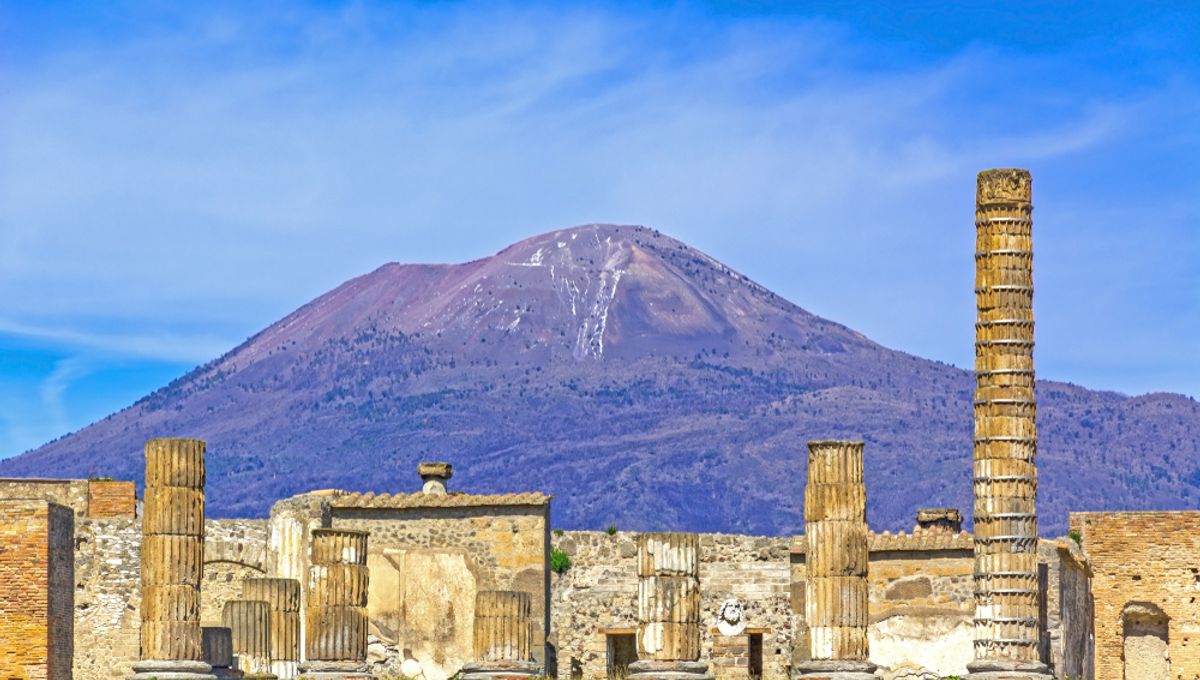
The first winners of the Vesuvius Challenge prizes, set for anyone who could help crack an ancient mystery, have been announced. The awards were issued to three different people who have helped decode the first word from carbonized “unreadable” scrolls that have not been read in nearly 2,000 years. What does it say? “Porphyras”, meaning “purple”.
The Vesuvius Challenge was launched in March 2023 and aims to “make history” by encouraging individuals and teams of people to devise new methods to read scrolls recovered from Herculaneum, Italy. These scrolls were originally housed at the Villa Papyri, a wealthy estate belonging to a Roman statesman, which was buried below volcanic ash and rock when Mount Vesuvius erupted in 79 CE.
For centuries, the scrolls and the surrounding library were hidden below the mud, but they were eventually unearthed in the 1700s. However, despite being preserved by the eruption, the scrolls also became carbonized, which made them impossible to read.
This is where the Vesuvius Challenge comes in. Former GitHub CEO Nat Friedman and a team of scientists hope that creative technologies and innovative techniques may reveal the scrolls’ hidden secrets. That is why they have offered a $700,000 Grand Prize, as well as several smaller prizes, to anyone who can help unravel them.
The First Letters prize has been awarded to 21-year-old computer science student, Luke Farritor, who managed to decipher the word “πορφυρας” on a scroll, which means “purple dye” or “cloths of purple.”
“Congratulations to 21-year-old computer science student @LukeFarritor who is the first person to see this handwriting in nearly 2,000 years. He has won the $40,000 First Letters prize for this world-historical achievement,” Friedman states in a X (formerly Twitter) post.
Soon after this award was given, Youssef Nader, another contestant, managed to identify the same word with more clarity, earning him the second prize of $10,000.
These two achievements would not have been possible without the contributions of another contestant, Casey Handmer, who found substantial and convincing evidence of ink within the unopened and petrified scroll. This earned Handmer the $10,000 First Ink prize.
According to a blog post, Handmer explained how he managed to identify the ink. His work paid the groundwork for Farritor’s subsequent discovery.
The $700,000 Vesuvius Challenge Grand Prize is still up for grabs and now, after these important contributions from Farritor, Nadar, and Handmer, it all feels more achievable. So who will claim it and what will they find?
Source Link: First Word From “Unreadable” Scrolls That Survived Vesuvius Has Been Decoded